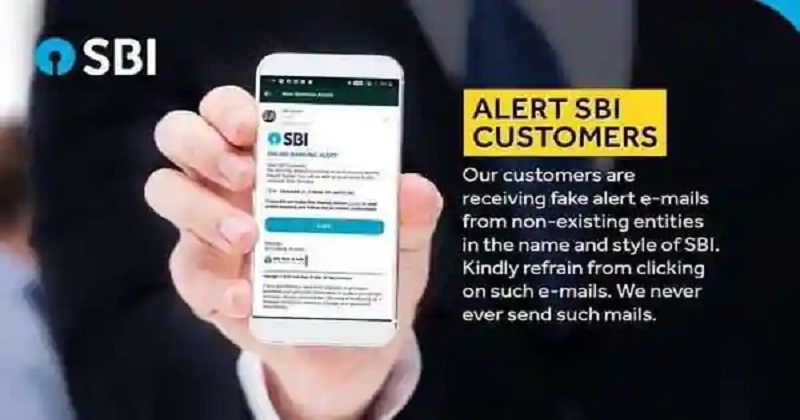
Phishing attack targeting SBI: An SMS has been sent to you requesting your personal information and bank account information. It says that it is from your bank! How will you respond? Be sure that the State Bank of India (SBI) does not contact its customers for personal or banking information through SMS. It is nothing but a trap, and if you are not careful, then you can lose your entire savings in one swipe.
In a recent tweet from its official Twitter account, the largest public sector lender in the country warned its customers against the frauds in vogue. SBI tweeted, ‘We never ask our customers for their personal or banking details through emails, SMS, calls, or embedded links. Kindly report details of Smishing to report.phishing@sbi.co.in or call the Cyber Crime helpline at 155260’.

Customers of SBI have been advised to delete messages immediately if they suspect deceit in a message. It is extremely important for SBI customers not to divulge any of their personal information like their card number, CVV number, PIN number, and other details to anyone, even if they are claiming from the bank. The SBI customers should be aware that both social engineering techniques and technical subterfuges are used in phishing attacks. The following are the steps taken by phishing attacks against SBI customers:
1) A user of Internet banking receives a fraudulent email, which appears to originate from a legitimate address.
2) The email contains a hyperlink that invites the recipient to click on it.
3) User clicks hyperlink and is redirected to a fake website that looks like truthful Internet banking site.
4) The email usually promises a reward for compliance or warns of a penalty for non-compliance.
5). The user must provide confidential information, like credentials or transaction passwords, as well as bank account numbers, etc.
Read more: Karnataka Cabinet expands to 29 new members; Son of Yediyurappa is exempt
6) The user fills in the details willingly and clicks on the ‘submit’ button.
7) Error page appears to the user
8) User fell victim to a phishing attack.
These frauds should be noted by SBI customers, so they are careful not to be scammed.

Post Your Comments